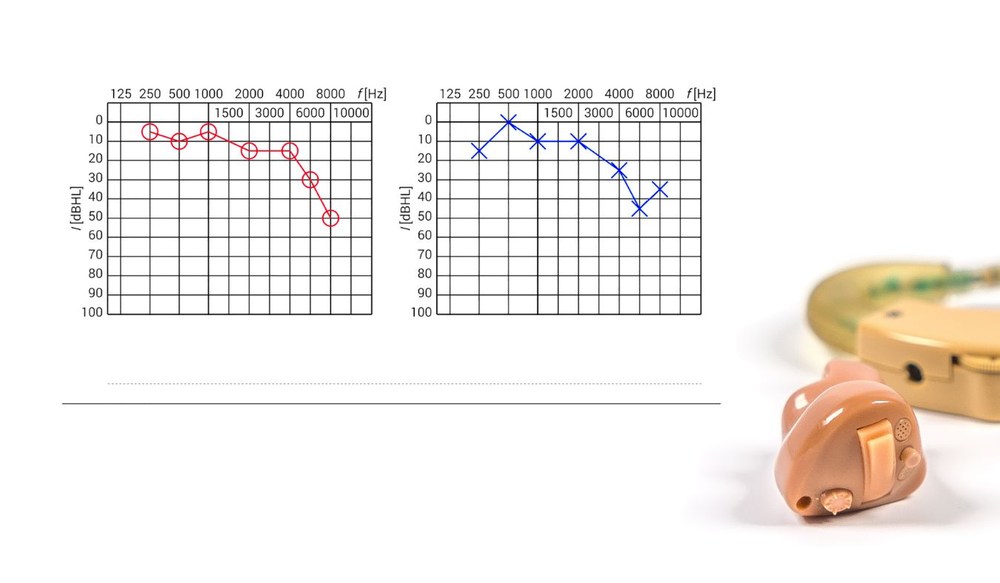Innovations in Hearing Aid Battery Technology
Advances in hearing aid battery technology have made daily use simpler and

By: admin | August 21, 2025
It’s completely normal to feel a little nervous before your first hearing test, especially when you’re not sure what to expect. Like any medical appointment you haven’t experienced before, the unknown can create some uncertainty even when the procedure is routine and straightforward. You might wonder what the test will involve, how long it will take, or what the results might tell you about your hearing health. These concerns are understandable, and most people feel at least some apprehension before their initial hearing evaluation.
The reality is that hearing tests are simple, routine procedures that are much easier than most people imagine. Knowing what happens during a hearing test and understanding the straightforward nature of the process can help ease much of the anxiety people feel beforehand. When you have a clear picture of what to expect, you can focus on getting useful information about your hearing health rather than worrying about the evaluation itself.
Noticing the signs of hearing loss in yourself is important for addressing it before it begins to affect your daily life. Many people experience hearing changes gradually, so early symptoms can be easy to overlook. You might find yourself asking others to repeat themselves more often or speaking louder than usual. Conversations in noisy environments may feel more challenging, and you may notice that group discussions are harder to follow.
Other indicators can include turning the television or radio up higher than normal, avoiding phone calls or feeling exhausted after trying to listen carefully. You might also catch yourself misunderstanding words or responding incorrectly in conversations without realizing it. These experiences often signal that your ears and brain are working harder to process sounds.
You may also notice that background noise seems louder or that certain sounds are harder to hear than they used to be. If you frequently mishear people or feel mentally drained after listening for extended periods, these could be signs of hearing loss.
Acknowledging changes in your own hearing can feel uncomfortable, but approaching it with awareness and care makes it easier to get support. Scheduling a hearing evaluation and discussing your experiences with a professional ensures you understand the extent of any loss and the options available.
Hearing loss can result from a variety of causes, and understanding these factors can help you be more aware of your own hearing health. One of the most common causes is aging, which naturally affects the delicate structures of the inner ear over time. Prolonged exposure to loud noises from work, music or recreational activities can also damage hair cells in the inner ear, leading to noise-induced hearing loss.
Certain illnesses, such as infections or chronic conditions like diabetes and high blood pressure, may impact hearing. Some medications have side effects that can affect hearing, and genetic factors can make some people more susceptible to hearing loss even at a younger age.
Other risk factors include repeated ear infections or untreated earwax buildup, which can block sound and reduce hearing over time. Lifestyle factors such as smoking and poor cardiovascular health may contribute as well. Men are generally more likely to experience hearing loss than women, and exposure to sudden or extreme loud noises, like explosions or concerts, can accelerate the process.
Feeling nervous before a hearing test is common and often comes from uncertainty about what to expect. You might worry about the results, how a diagnosis could change your daily routine or whether the process will be confusing or uncomfortable. Concerns about needing hearing aids, using new devices or how friends and family might react can add to this anxiety. Studies suggest that about one in five adults feel anxious before medical appointments, including hearing tests, so you are not alone in feeling this way.
Some people also feel self-conscious about being judged or making mistakes during the test, especially if it is their first visit. These worries are natural and can affect people of all ages. Understanding the reasons behind this nervousness can help you feel more prepared and confident going into your appointment. Knowing that these feelings are shared by many makes it easier to approach the visit with a sense of reassurance and readiness.
Anxiety during a hearing test can make it harder to pay attention and follow instructions, which may affect your results. While being alert can help you listen closely, feeling tense or rushing through the test can cause you to miss sounds or have trouble concentrating.
Understanding how anxiety can influence your experience helps you talk openly with our team about any concerns. This can lead to a more accurate assessment and better support during your visit.
Preparing for a hearing test appointment can help you feel more confident and reduce anxiety about what to expect. Start by thinking about any changes in your hearing that you have noticed. Make a list of situations where you struggle to hear, like during conversations in noisy environments, on the phone or when watching television. Include any patterns you’ve noticed, like ringing in the ears or difficulty understanding speech in groups. Sharing this information with your hearing specialist allows them to better understand your experiences and tailor the testing to your needs.
It can also help to note any medications you take and any medical conditions you have, since certain health factors can affect hearing. If you’ve had previous hearing tests, bringing those records can give your specialist a clearer picture of changes over time. Thinking through questions in advance, like what testing will involve or what treatment options might look like, can make the appointment feel less intimidating.
Understanding what will happen during the test can also ease anxiety. A typical hearing evaluation is noninvasive, usually involving listening to sounds through headphones and responding when you hear them. Some tests may also include checking middle ear function or balance.
Preparing in these ways ensures the appointment is productive and efficient while giving you a sense of control. Feeling ready helps you approach the visit with a clear mind, which allows your hearing specialist to gather accurate information and provide recommendations that truly match your needs.
During a typical hearing test, you will first talk with our team about your health and any changes in your hearing. This conversation helps us understand your needs and what you have noticed in daily life. We may ask about noise exposure or family history of hearing loss to get a complete picture of factors that could affect your hearing.
Next, you will sit in a quiet room or booth and wear headphones while we play a series of tones at different volumes and pitches. You will be asked to signal when you hear each sound. This part of the test checks your ability to detect soft and high-pitched sounds and provides a baseline for your hearing across different frequencies.
Other tests may also be included depending on your needs:
Coming prepared can make your appointment go smoothly and help ease any anxiety. Bring a list of any changes you’ve noticed in your hearing, questions about your hearing health and details about medications or previous ear issues. This allows our team to focus on your needs and makes the conversation more efficient, so you can feel confident that nothing important is overlooked.
Arriving early and giving yourself time to settle in can help you feel more relaxed. Being comfortable with the environment, taking a few deep breaths and reviewing your notes can reduce stress. Letting the team know if you feel nervous or need clarification at any point allows them to support you and keep the process calm.
During the appointment, focus on staying present rather than worrying about the outcome. Listening carefully, following instructions and asking questions when needed ensures the test is accurate and less stressful.
Afterward, take time to understand the results and discuss next steps. Reviewing what the findings mean and the options available helps reduce uncertainty and gives you a clear path forward. Feeling informed and supported leaves you more confident about your hearing and the decisions ahead.
Asking questions during your hearing test helps you feel more informed and confident about your hearing health. You might want to ask about how your results compare to normal hearing for your age, whether any changes you’ve noticed are typical or if further testing is recommended.
It’s also helpful to ask about next steps if changes are found. Questions about treatment options, hearing aid suitability or strategies to protect your hearing can give you clarity on what to do after the appointment. You can ask about follow-up visits, how often testing should be repeated and what signs to watch for in the meantime.
Taking the time to understand what happens during a hearing test can make a big difference in how you approach your appointment. When you know the steps involved and the types of questions our team will ask, it becomes easier to relax and focus on the information that matters most for your hearing. Feeling prepared helps you engage fully with the process, ask meaningful questions and leave the appointment with a clear sense of your hearing health.
We want you to feel comfortable and confident every step of the way. If you have any lingering concerns or want more guidance before your visit, our team is here to help. Contact Sandia Hearing Aids in Farmington, NM at (505) 436-3609 to speak with us and learn more about what to expect during your hearing test. Together we can make your appointment as smooth and informative as possible.
Tags: OAE tests, speech tests, tympanometry

Advances in hearing aid battery technology have made daily use simpler and
By: admin | December 21, 2025

It’s completely normal to feel a little nervous before your first
By: admin | August 21, 2025

Music therapy helps people adjust to hearing aids by training their brains
By: admin | February 7, 2025